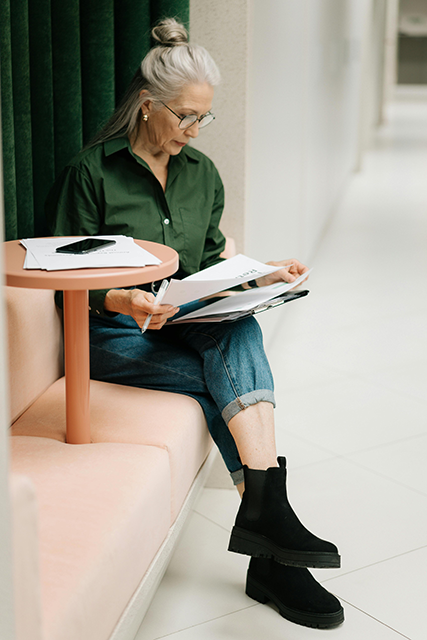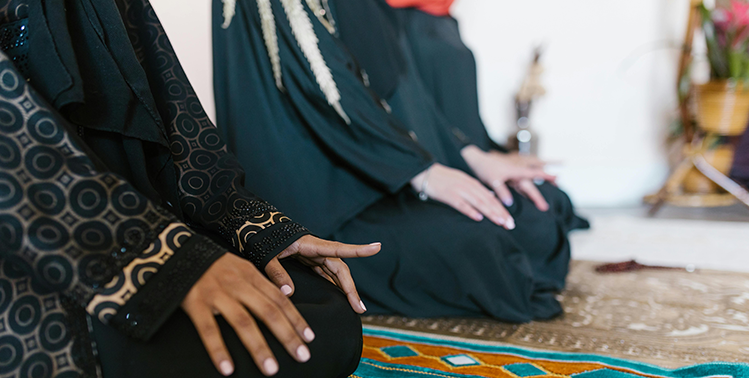What You Need to Know about the Menopause
When most people think about the menopause, they picture hot flushes, night sweats, and mood changes. But many women are surprised to discover it can also affect their eyes. From dry, gritty sensations to changes in vision, hormonal shifts can influence eye comfort and health in several ways — and knowing what to watch for means you can take steps to protect your sight.
Dry, Irritated Eyes — the Most Common Symptom
Around six in ten women experience dry eyes during the menopause. This can cause a gritty or burning feeling, watery eyes, blurred vision that improves when you blink, and increased sensitivity to light.
Falling oestrogen and androgen levels can reduce tear quality and stability, due to a reduction in oil production from the meibomian glands which are situated on the edges of your eyelids, leaving eyes prone to dryness. This is sometimes called hormonal dry eye.
Contact lens wearers may find their lenses aren’t as comfortable or blur over as the day goes on – a change in lens material or drops can help – ask for advice.
As your tear film is a protective layer, if it is deficient allergic symptoms can become worse or occur for the first time making them itchy and pink.
Puffy, Sticky Eyelids and Blepharitis
The menopause can also trigger blepharitis — inflammation of the eyelids. This often causes some redness, swollen lids, crusty eyes in the morning, and the feeling that something’s stuck in your eye. Warm compresses, careful lid cleaning, and specialist treatments from your optometrist can make a big difference.
Changes in Vision and Eye Shape
Hormonal fluctuations may subtly change the shape of your eyes. This can make your glasses or contact lenses feel “not quite right”, cause difficulty focusing (especially when reading or using screens), and lead to eye fatigue after short screen sessions.
Lid and Lash Changes
Some people find their lashes become a bit sparser during menopause. This can occur due to the lashes being more brittle due to the reduction in oil production. Lid skin may lose elasticity and become drier too. Lash serums containing oils can strengthen lashes, and lash growth serums containing drugs called ‘prostaglandin analogues’ are available. However it is wise to be aware of the side effects of these drugs, which even in small quantities applied to the lash line can cause irreversible skin or iris discolouration and loss of orbital fat over many years of use.
Long-Term Eye Health in the Menopause
The hormonal changes of the menopause can increase the risk of certain eye conditions. While not everyone will experience serious issues, it’s worth staying alert. As dry eye can make contact lens wear less comfortable and worsen eye allergies, don’t delay getting advice if you notice changes. In rare cases, severe dryness can be linked to conditions like Sjögren’s syndrome which is an autoimmune disease and it’s important to differentiate if symptoms are severe. This would mean referral to a rheumatologist.
Some studies have also found a link between hormone replacement therapy (HRT) and either an improvement or worsening of dry eye depending on the ‘cocktail’ of hormones — so if you’re taking HRT, it’s important to mention this during your eye examination.
Practical Steps to Protect Your
Hydration & Nutrition
- Aim to drink at least two litres daily.
- As well as water, tea, coffee (but keep an eye on your caffeine intake) herbal infusions, milk, diluted fruit juice (watch your sugar intake) and water-rich fruits such as cucumber and melon can all contribute to your fluid intake.
- Include omega-3 rich foods like salmon, mackerel, milled flaxseeds, or chia seeds to support tear quality, or consider a quality supplement containing EPA and DHA.
Screen & Environment Tips
- Follow the 20-20-20 rule: every 20 minutes, look at something 20 feet away for 20 seconds.
- Use a humidifier to combat dry indoor air.
- Wear UV-protective sunglasses outdoors — even on cloudy days.
Everyday Comfort Measures
- Try a hot compress on your eyelids to improve oil gland function.
- Use high-quality lubricating drops to relieve dryness.
When to See Your Optometrist
Book an eye test at least every two years — or sooner if you notice changes in your vision or eye comfort. Tell your optometrist if you are going through the menopause or taking HRT, as this can help them tailor your care and advice given.
In summary: The menopause can bring a range of changes to your eyes — but with the right care, these can be managed effectively. Staying hydrated, eating a nutrient-rich diet, protecting your eyes, and booking regular eye examinations are the best ways to keep your vision clear and comfortable.
If you’re experiencing symptoms, our friendly team can help you find relief and protect your long-term eye health.


